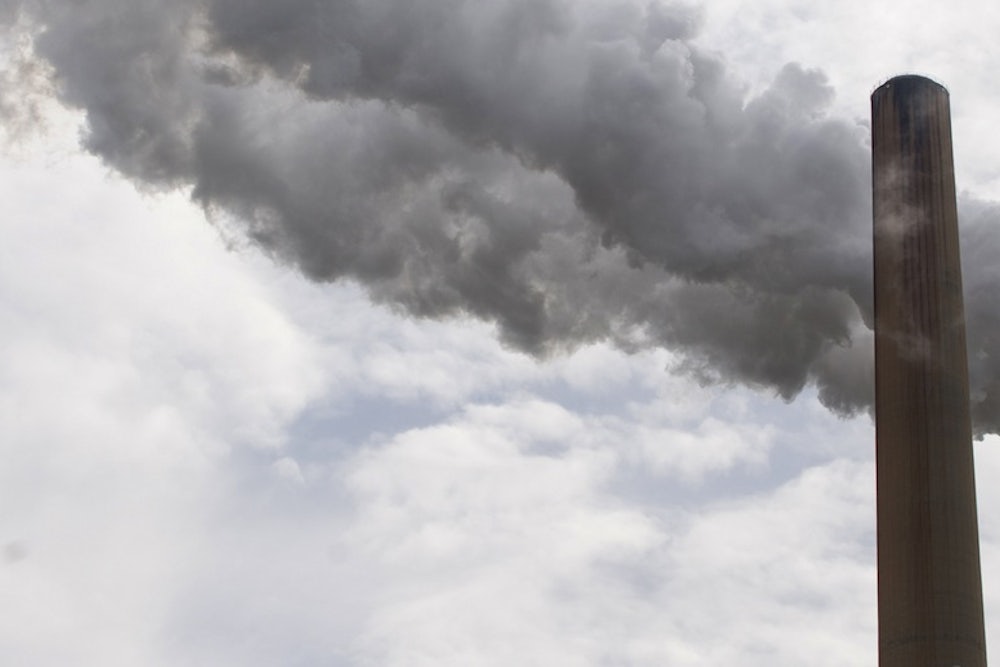We’re seeing a smart change in how to talk about global warming. Debating it as a moral problem or pointing to the scientific consensus is clearly not enough to convince politicians to commit to broad greenhouse gas reductions. So, instead, the White House is reframing it in language that most people should understand—the economy.
The White House Council of Economic Advisers’ new report on Tuesday describes climate change in these terms, showing exactly why inaction is bad policy. For every decade the U.S. waits to enact climate policy, the report finds the net cost rises 40 percent, with costs rising substantially over time. The more ambitious the target, the bigger the cost procrastination incurs, as it becomes harder with every year to achieve the same goal.
And if we do wait too long, and global temperatures exceed 2 degrees Celsius warming to 3 degrees or 4 degrees warming, the Gross Domestic Product is going to take a hit. The economists say that damages from 3 degrees Celsius would reduce GDP by 0.9 percent worldwide. For the U.S., that would mean about $150 billion lost each year.

All this helps frame climate action as taking out insurance today against the worst of global warming’s impacts, just like a responsible homeowner would buy insurance. Putting numbers to the cost of inaction takes aim directly at a classic Republican rebuttal—that it’s better to wait for the so-called “unsettled science” to settle on exact timing and magnitude of global warming’s consequences.
“If anything, we understate the cost of delay,” Chairman of the Council of Economic Advisors Jason Furman told reporters on a press call Monday.
I can't vouch for the specific calculations, which pulls conclusions from 16 existing studies to look at a range of climate targets. But the gist of the report—that delaying action on climate change will cost us money—is undeniably true, grounded in academic research. And in language and focus, it builds on what Risky Business told us a month ago—that cutting reliance on fossil fuels is really an investment against risk.
“Just as businesses and individuals guard against severe financial risks by purchasing various forms of insurance, policymakers can take actions now that reduce the chances of triggering the most severe climate events,” the report says.
While there is strong certainty linking greenhouse gas emissions to global warming, there is less surrounding the spectrum of consequences. Deniers tend to exploit this point.
“Some have pointed to that uncertainty and claim that it’s an argument for not acting today and waiting until we know more to act later,” Furman said. “Uncertainty and particularly the large tail-risks associated with climate change are an argument for acting more today as a form of insurance against the worst consequences in the future.”
There is another, more immediate benefit to taking action, too. Climate action also means cutting pollutants that pose a public health problem—like particulate matter that causes early death and asthma. The Environmental Protection Agency’s own track record of targeting pollution shows just how quickly entire regions see the health benefit of less pollution.
Republicans are free to ignore the results of the White House study, which comes out the same day the Senate Budgetary Committee is holding a hearing on the topic. But at the very least, this information may force climate deniers to come up with a new reason for delaying action.
